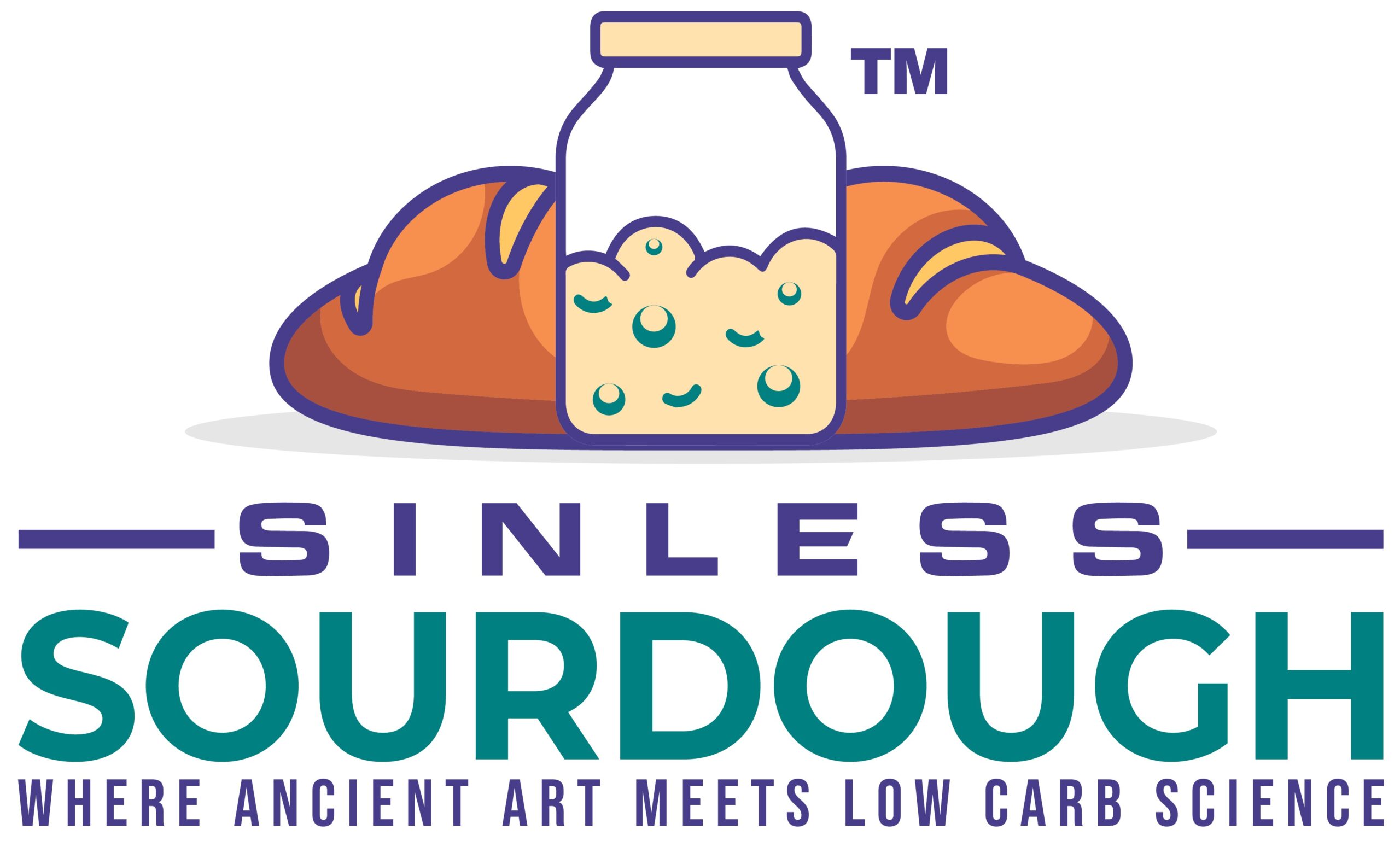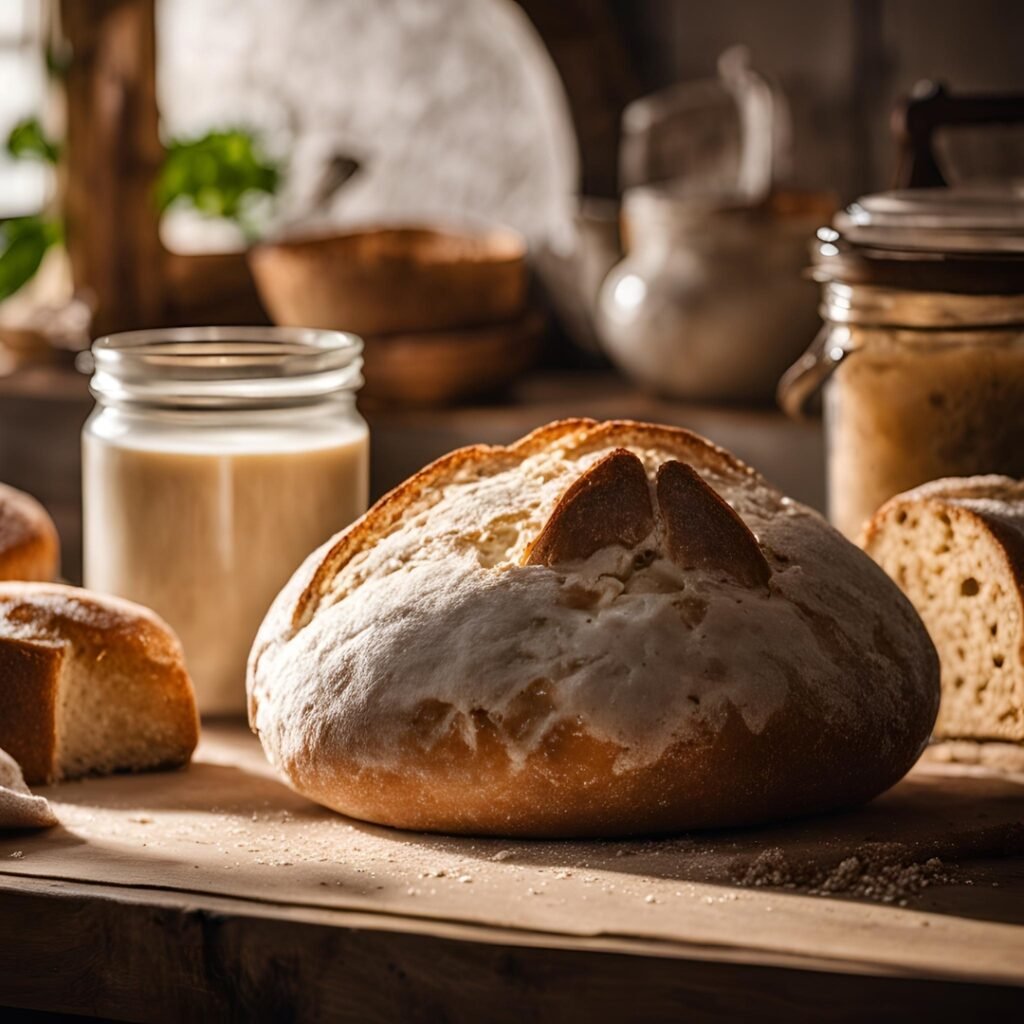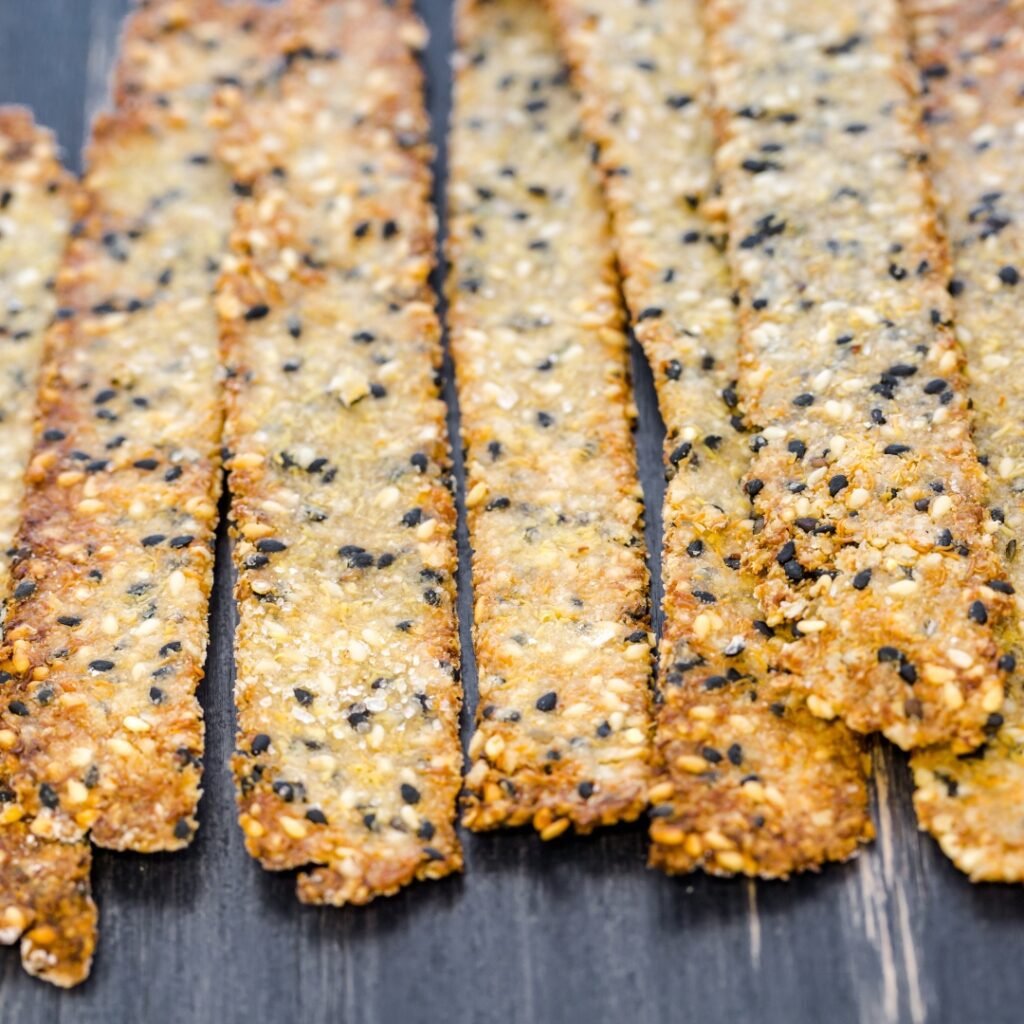Your Low Carb Sourdough Starter and the Magic of Water

The Best Water for Your Low-Carb Sourdough Starter

Why Water Matters
Your sourdough starter is alive with wild yeast and bacteria that need the right environment to thrive. Water isn’t just for mixing—it provides essential minerals that feed these microorganisms and help them ferment properly.
Spring Water is Your Best Choice
Why spring water works so well:
- Contains natural minerals (calcium, magnesium, potassium) that yeast needs
- Has a neutral pH around 7.0
- No chlorine or chemicals that kill beneficial bacteria
- Naturally filtered and clean
What Makes Water Good or Bad for Starters
✅ Good Water Choices:
- Spring water (pH around 7.0)
- Filtered tap water (if chlorine is removed)
- Well water (if tested and clean)
❌ Bad Water Choices:
- Distilled water – No minerals = weak starter
- Reverse osmosis water – Too pure, missing nutrients
- Tap water with chlorine – Kills beneficial microbes
- Alkaline water – pH too high, slows fermentation
Recommended Spring Water Brands
Canada:
- Compliments (~pH 7.0)
- Eska (pH 6.8)
USA:
- Crystal Geyser (pH 6.9-7.0)
- Poland Spring (~pH 7.0)
- Arrowhead (pH 6.8-7.0)
What About Water Filters?
Most pitcher filters remove too many minerals or change the pH. If you want to use filtered water:
- Test your water before and after filtering
- Look for filters that retain minerals
- Check that pH stays around 7.0
Using Well Water
Well water can work if it’s:
- Clean and food-safe
- Not treated with chlorine or salt softeners
- Has moderate mineral content
- Neutral pH (around 7.0)
Tip: Test your well water first, as quality varies widely.
How to Fix a Struggling Starter
If your starter is weak or inactive, bad water might be the problem:
- Switch to spring water immediately
- Keep only 2 tablespoons of your healthiest starter
- Feed with spring water + low-carb flour every 12-24 hours
- Continue until you see bubbles and activity return
The Bottom Line
For a healthy, active low-carb sourdough starter, use spring water with a neutral pH and natural minerals. It’s the simplest way to give your starter the best environment to thrive and make delicious bread.
Remember: Your starter is a living culture. Give it the right water, and it will reward you with better fermentation and tastier bread.
FYI: SOURDOUGH MEDICAL STUDIES AND REVIEWS:
Here they are:
- Does Sourdough Bread Provide Clinically Relevant Health Benefits?: Link: https://pmc.ncbi.nlm.nih.gov/articles/PMC10399781/
- The Sourdough Microbiome : Link: https://asm.org/articles/2020/june/the-sourdough-microbiome
- Sourdough Microbiome Comparison and Benefits: Link: https://pmc.ncbi.nlm.nih.gov/articles/PMC8306212/
- Nutritional Benefits of Sourdough; Systematic Review : Link: https://pubmed.ncbi.nlm.nih.gov/36811591/
- Use of sourdough in low FODMAP baking : Link: https://pubmed.ncbi.nlm.nih.gov/29932101/
Disclaimer:
All information provided on this website regarding the health benefits of sourdough low carb bread is intended for educational purposes only. The content presented is not meant to be taken as specific medical advice for any individual. It should not be considered a replacement for professional medical guidance or treatment. If you have any health concerns, especially related to diabetes, pre-diabetes, or any other medical condition, please consult with a healthcare professional immediately.
🔥 UNLOCK MORE RECIPES STARTER + MEMBERSHIP – Only $99 CAD! 🔥
Get a second starter with your membership – the exclusive membership recipes use 2 different low-carb feedings to bake the 3 different styles of breads and baked goods (weight loss, low-carb lifestyle maintenance, fast and easy discard recipes) that will transform your baking game beyond what your current starter can achieve!
💰 PRICING: Regular Price: $198 CAD Today Only: $99 CAD (Only $99 CAD!)
SINLESSSOURDOUGH.COM
Click the Starter + Membership Box
Your Discounted Membership Includes:
🥖 1849 San Francisco Gold Rush Dehydrated Starter: Scientifically validated starter shipped free to your door!
📦 FREE Shipping: Your starter ships to you at no extra cost
🎥 25+ Instructional Video Trainings: Master Keto & Low-Carb Sourdough Baking with comprehensive video lessons
📚 3 E-Sinless Sourdough Cookbooks: Easy-to-follow sourdough recipes for your low-carb lifestyle
📖 3 E-Keto Low-Carb Cookbooks: Delicious low-carb recipes to complement your baking
🗓️ E-28-Day Keto Kickstarter Journal & Planner: Stay on track with your low-carb journey
📝 Keto Low-Carb E-Cheat Sheets & Quick Guides: Shortcuts for perfect baking every time
🍞 Training for 3 Styles of Keto & Low-Carb Sourdough: Learn recipes for weight loss, lifestyle maintenance, and easy discard recipes
💬 Exclusive Community Access: Share tips, ask questions, and get expert support from fellow bakers
🚀 DON’T MISS OUT – GRAB IT FOR Only $99 CAD NOW! 🚀
Transform Your Baking Today:
- Visit sinlesssourdough.com™
- Click “Starter + Membership”
- Proceed to the purchase page
- Enter code: SINLESS50
- Complete checkout and START BAKING guilt-free sourdough immediately!
SINLESSSOURDOUGH.COM
Click the Starter + Membership Box











Responses